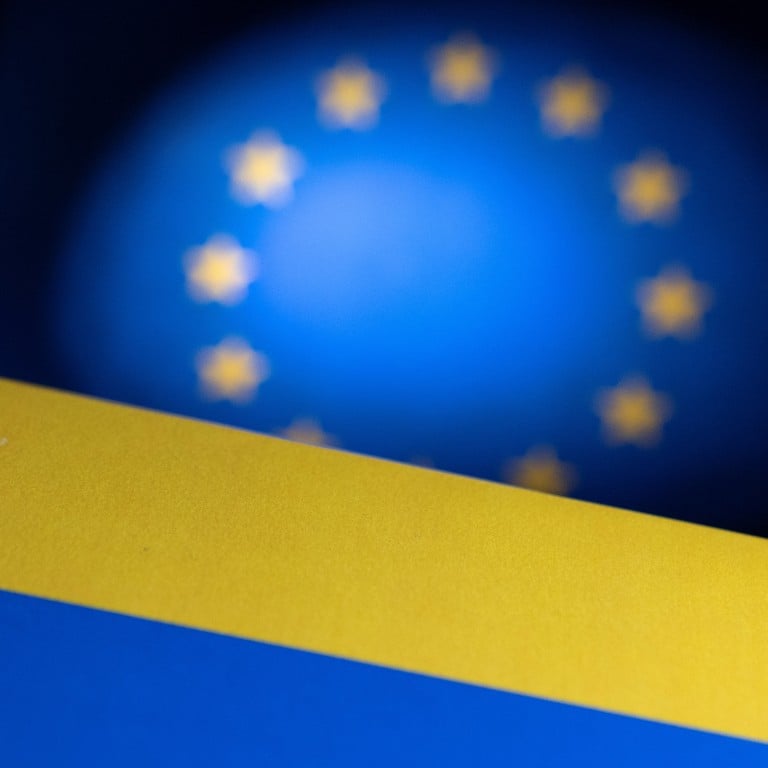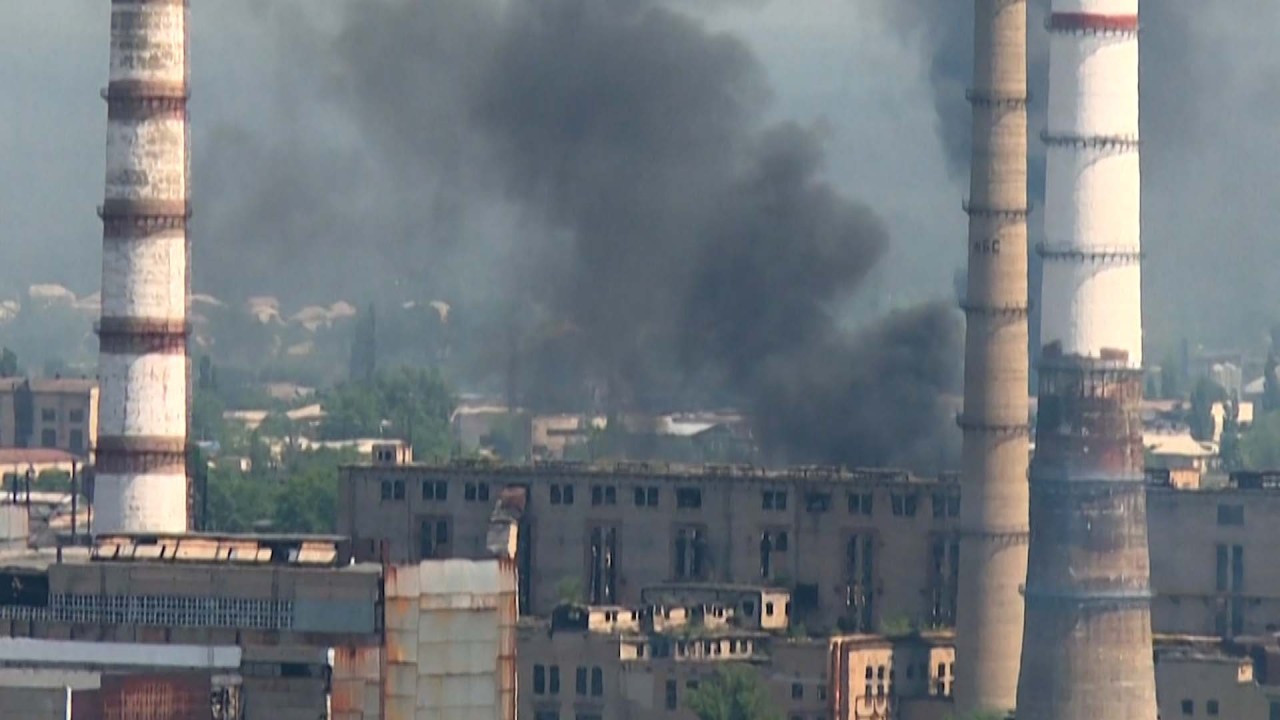
European Union agrees to make Ukraine a candidate for EU membership
- Ukraine’s President Volodymyr Zelensky hailed the EU decision as ‘a unique and historic moment’
- Ukraine will have to go through protracted negotiations, and gaining membership could take years
The European Union has agreed to make Ukraine a candidate for EU membership, setting in motion a potentially years-long process that could pull the embattled country further away from Russia’s influence and bind it more closely to the West.
Ukraine applied for EU membership less than a week after Moscow invaded on February 24.
The decision by the leaders of the 27-nation bloc to grant Ukraine candidate status on Thursday was uncharacteristically rapid for the EU. But the war and Ukraine’s request for fast-track consideration lent urgency to its cause.
Ukraine’s President Volodymyr Zelensky hailed the decision as “a unique and historic moment”.
The expected decision, taken while Ukraine is being attacked by Russian forces “is a unique and historic moment in Ukraine-EU relations”, Zelensky said on Twitter, adding that “Ukraine’s future is within the EU”.
Gaining membership could take years or even decades. Countries must meet a detailed host of economic and political conditions, including a commitment to the rule of law and other democratic principles.
Moscow accuses Germany of ‘Russophobic hysteria’, pounds Ukraine
The EU also granted candidate status to Moldova, which borders Ukraine.
Ukraine will have to curb government corruption and adopt other reforms.
Several diplomats, speaking on condition of anonymity ahead of an EU summit in Brussels, predicted Ukraine would receive the unanimous approval required for candidate status. Ukraine submitted its application just a few days after Russia invaded on February 24.
“It will strengthen Ukraine, it will strengthen Europe. It is a decision for freedom and democracy and puts us on the right side of history,” European Parliament President Roberta Metsola said ahead of the announcement.
The decision was uncharacteristically rapid for the EU. But the biggest war in Europe since World War II and Ukraine’s request for fast-track consideration upended the bloc’s go-slow approach to expansion.
The European Parliament endorsed Ukraine’s bid hours before the summit started, passing a resolution that called on EU governments to “move without delay” and “live up to their historical responsibility”.
The EU’s nations have been united in backing Ukraine in its fight against Russia’s invasion with money and weapons, adopting unprecedented economic sanctions against the Kremlin.
EU candidate status does not give an automatic right to join the bloc and does not provide any immediate security guarantees.
Once a country gains membership, however, it is covered under an EU treaty clause that says if a member falls victim to armed aggression, the other EU countries are obliged to assist it by all the means in their power.
The main benefits of EU membership, though, are economic, since it gives access to a market of 450 million consumers with free movement of labour, goods, services and capital.
Russia vows to inflict pain on Lithuania over Kaliningrad goods ‘blockade’
Ukraine has long aspired to join Nato, too, but the military alliance is not about to offer an invitation, in part because of governmental corruption, shortcomings in the country’s defence establishment, and its contested borders.
Before the war, Russian President Vladimir Putin demanded that Ukraine never be allowed to join Nato, which he has condemned for its eastward spread toward Russia’s flank. But earlier this month, he did not seem bothered by Ukraine’s determination to get closer to the EU, saying it is not a military pact and thus “we have no objections”.
To win membership, Ukraine must meet a host of detailed political and economic conditions, including a commitment to the rule of law and other democratic principles. The process could take years, maybe decades.
Türkiye, for example, applied for membership in 1987, received candidate status in 1999, and had to wait until 2005 to start talks for actual entry. Only one of more than 30 negotiating “chapters” has been completed in the years since, and the whole process is at a standstill as a result of various disputes between the EU and Türkiye.
Similarly, several Balkan countries have been seeking without success for many years to join the EU.
‘Lost a lot of pilots’: Inside Ukraine’s secret, deadly rescue missions
European officials have said that Ukraine has already adopted about 70 per cent of the EU rules and standards, but they also have pointed to corruption and the need for deep political and economic reforms in the country.
“Considerable efforts will be needed, especially in the fight against corruption and the establishment of an effective rule of law,” Belgian Prime Minister Alexander De Croo said. “But I am convinced that it is precisely the (post-war) reconstruction of Ukraine that will provide opportunities to take important steps forward.”
EU leaders on Thursday were also set to debate granting candidate status to Moldova, a tiny, non-Nato country that borders Ukraine.
Additional reporting by Agence France-Presse


